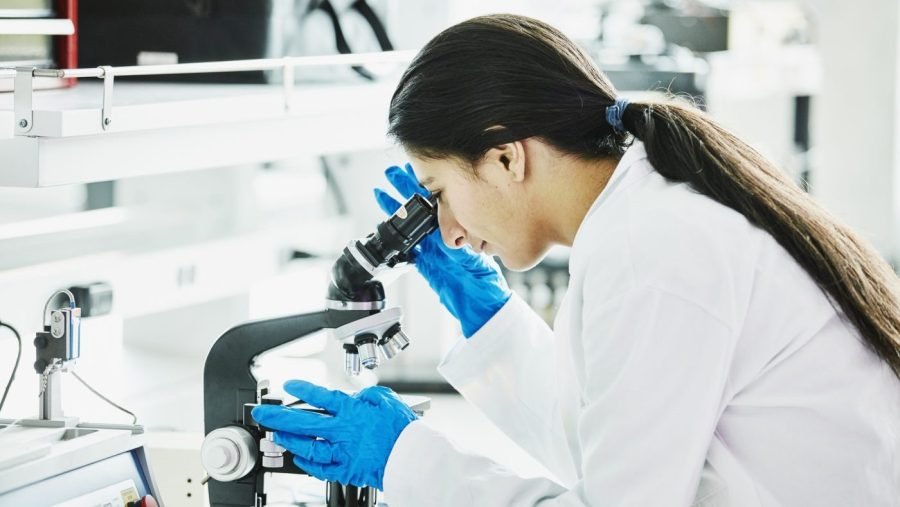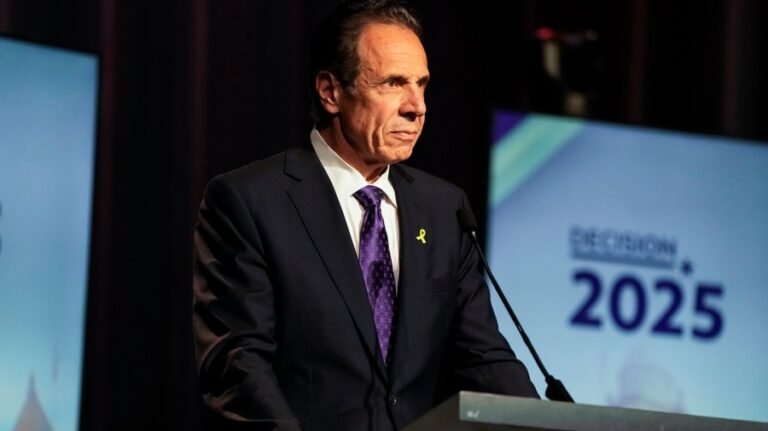
The Department of Health and Human Services announced at the end of August that Dr. Susan Monarez “is no longer director” of the Centers for Disease Control and Prevention. In office for only a month, Monarez had clashed with HHS Secretary Robert F. Kennedy Jr. over vaccine policy.
Four senior CDC staff — the chief medical officer and the directors of the National Center for Emerging Infectious Diseases, the National Center for Immunization and Respiratory Diseases, and the Office of Public Health Data — resigned to “raise a red flag” about Kennedy’s unwillingness to base policy decisions on sound scientific evidence.
Their resignations followed five departures of senior staff in March; layoffs of 2,400 employees, one-fifth of the total workforce; the removal of all 17 members of the CDC’s vaccine advisory panel in April; and Kennedy’s decision in May to end recommendations that healthy children and pregnant women get COVID vaccines.
“It feels like the CDC is over,” another departing scientist declared.
The assault on experience and expertise at the CDC — for decades the global gold standard in public health — is just the tip of the iceberg. The Trump administration’s elevation of partisan politics over scientific expertise is crippling research and rolling back evidence-based policies at agencies across the federal government, including the Environmental Protection Agency, the National Oceanic and Atmospheric Administration, the Food and Drug Administration, the Department of the Interior and the Department of Energy.
Even worse, the administration is slashing funding for basic science research and creating barriers to recruiting scientific talent from abroad, producing a brain drain with catastrophic consequences that are already being felt.
Federal spending on research and development, much of it granted to university-based investigators by the National Science Foundation and the National Institutes of Health, is at a 25-year low as a percentage of gross domestic product. This spring, the National Science Foundation eliminated 1,669 grants, worth $1.5 billion. In 2026, the percentage of submitted proposals that get funded by the NSF will be reduced from 26 percent to about 7 percent; grants to early career researchers are likely to decline by 78 percent. Many fewer graduate and post-doctoral research fellowships will be available.
This spring, the NIH terminated 2,482 grants, some of them for vaccine development and cancer treatments, worth $8.7 billion. And the 2026 budget, for the fiscal year beginning Oct. 1, contains the largest reductions in decades. More than 99 percent of the 356 drugs approved by the FDA between 2010 and 2019 were developed in part with NIH funding. In 2024, every dollar invested in NIH research generated a $2.56 return.
Job openings in STEM fields at research universities are likely to decline by 20 percent in 2026. Nor will industry be able to absorb the many experienced scientists, newly minted Ph.D. holders and researchers who have resigned from or been fired by the federal government. Not surprisingly, three-quarters of the scientists who responded to a poll conducted by the publication Nature indicated they would consider leaving the U.S.
And those scientists are being wooed. An EU campaign called “Choose Europe” has allocated €500 million to entice them to relocate. Aix-Marseille University’s “Safe Place for Scientists” welcomes those who “may feel threatened or hindered in their research.” Australia’s “Global Talent Attraction Program” touts “an unparalleled opportunity to attract some of the smartest minds.”
China has long sought to recruit U.S.-based scientists through its High-End Foreign Expert Recruitment Program and other initiatives. After his grant was frozen by the Trump administration, the Chinese government offered Nobel Laureate neuroscientist Ardem Patapoutian 20 years of funding.
The administration’s restrictions on international students and scholars are further accelerating the brain drain. This includes the revocation of more than 6,000 student visas, long delays in scheduling visa interviews, intensive social media vetting of all visa applicants and travel bans. Most recently, the administration proposed limiting temporary student visas to a maximum of four years, far less than the average time required to complete a doctorate.
Temporary visa holders constitute 39 percent of doctoral students and 54 percent of researchers in science, engineering and health. Among the best and brightest researchers in the world, many choose to remain in the U.S. upon completion of their degrees. More than a few have founded billion-dollar companies. Those who return home often bring an appreciation of American values with them.
For decades, America was a magnet for international talent, which helped drive U.S. scientific, technological and economic preeminence. That is changing.
“I probably wouldn’t come,” an international student recently said. “I would invest my time in a place where there’s stability.” While concerns about espionage and theft of U.S. intellectual property are legitimate (if overstated), blanket restrictions on foreign students and researchers are not the way to address them.
This brain drain is America’s gift to China. In recent years, Beijing has spent hundreds of billions of dollars on research and development and higher education. It has already paid off. China far exceeds the U.S. in STEM graduates, patents and publications in prestigious STEM journals, and it leads the world in high-performance computing, quantum technology, renewable energy and more. Given an opening by the Trump administration, China is well positioned to race ahead as it accelerates its push “to attract the world’s top scientific talent.”
Once a nation falters in the race to be a “science powerhouse,” asserts President of the National Academy of Scientists Marcia McNutt, “you never fully recover. You might accelerate back to 60, but you can’t make up for those years when you were at a standstill while the competition was racing ahead.”
The U.S., alas, is not standing still. With lost generations of knowledge workers in basic and applied science, medicine and technology, we are going backwards. As that happens, we will have a hell of a time making America great again.
Glenn C. Altschuler is the Thomas and Dorothy Litwin Emeritus Professor of American Studies at Cornell University. David Wippman is emeritus president of Hamilton College.


